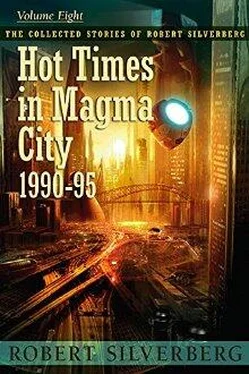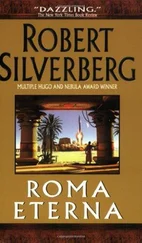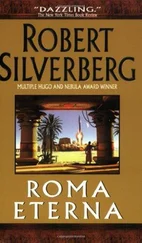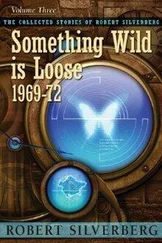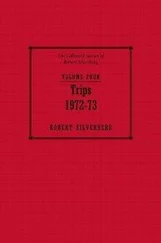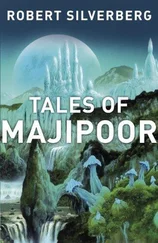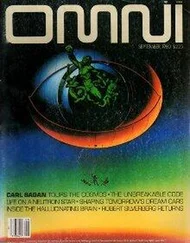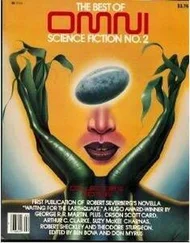Robert Silverberg - Looking for the Fountain
Здесь есть возможность читать онлайн «Robert Silverberg - Looking for the Fountain» весь текст электронной книги совершенно бесплатно (целиком полную версию без сокращений). В некоторых случаях можно слушать аудио, скачать через торрент в формате fb2 и присутствует краткое содержание. Год выпуска: 2014, ISBN: 2014, Издательство: Subterranean Press, Жанр: Фантастика и фэнтези, на английском языке. Описание произведения, (предисловие) а так же отзывы посетителей доступны на портале библиотеки ЛибКат.
- Название:Looking for the Fountain
- Автор:
- Издательство:Subterranean Press
- Жанр:
- Год:2014
- ISBN:978-1-59606-705-9
- Рейтинг книги:5 / 5. Голосов: 1
-
Избранное:Добавить в избранное
- Отзывы:
-
Ваша оценка:
- 100
- 1
- 2
- 3
- 4
- 5
Looking for the Fountain: краткое содержание, описание и аннотация
Предлагаем к чтению аннотацию, описание, краткое содержание или предисловие (зависит от того, что написал сам автор книги «Looking for the Fountain»). Если вы не нашли необходимую информацию о книге — напишите в комментариях, мы постараемся отыскать её.
Looking for the Fountain — читать онлайн бесплатно полную книгу (весь текст) целиком
Ниже представлен текст книги, разбитый по страницам. Система сохранения места последней прочитанной страницы, позволяет с удобством читать онлайн бесплатно книгу «Looking for the Fountain», без необходимости каждый раз заново искать на чём Вы остановились. Поставьте закладку, и сможете в любой момент перейти на страницу, на которой закончили чтение.
Интервал:
Закладка:
Looking for the Fountain
by Robert Silverberg
My name is Francisco de Ortega and by the grace of God I am 89 years old and I have seen many a strange thing in my time, but nothing so strange as the Indian folk of the island called Florida, whose great dream it is to free the Holy Land from the Saracen conquerors that profane it.
It was fifty years ago that I encountered these marvelous people, when I sailed with his excellency the illustrious Don Juan Ponce de Leon on his famous and disastrous voyage in quest of what is wrongly called the Fountain of Youth. It was not a Fountain of Youth at all that he sought, but a Fountain of Manly Strength, which is somewhat a different thing. Trust me: I was there, I saw and heard everything, I was by Don Juan Ponce’s side when his fate overtook him. I know the complete truth of this endeavor and I mean to set it all down now so there will be no doubt; for I alone survive to tell the tale, and as God is my witness I will tell it truthfully now, here in my ninetieth year, all praises be to Him and to the Mother who bore Him.
The matter of the Fountain, first.
Commonly, I know, it is called the Fountain of Youth. You will read that in many places, such as in the book about the New World which that Italian wrote who lived at Seville, Peter Martyr of Anghiera, where he says, “The governor of the Island of Boriquena, Juan Ponce de Leon, sent forth two caravels to seek the Islands of Boyuca in which the Indians affirmed there to be a fountain or spring whose water is of such marvelous virtue, that when it is drunk it makes old men young again.”
This is true, so far as it goes. But when Peter Martyr talks of “making old men young again”, his words must be interpreted in a poetic way.
Perhaps long life is truly what that Fountain really provides, along with its other and more special virtue—who knows? For I have tasted of that Fountain’s waters myself, and here I am nearly 90 years of age and still full of vigor, I who was born in the year of our Lord 1473, and how many others are still alive today who came into the world then, when Castile and Aragon still were separate kingdoms? But I tell you that what Don Juan Ponce was seeking was not strictly speaking a Fountain of Youth at all, but rather a Fountain that offered a benefit of a very much more intimate kind. For I was there, I saw and heard everything. And they have cowardly tongues, those who say it was a Fountain of Youth, for it would seem that out of shame they choose not to speak honestly of the actual nature of the powers that the Fountain which we sought was supposed to confer.
It was when we were in the island of Hispaniola that we first heard of this wonderful Fountain, Don Juan Ponce and I. This was, I think, in the year 1504. Don Juan Ponce, a true nobleman and a man of high and elegant thoughts, was governor then in the province of Higuey of that island, which was ruled at that time by Don Nicolas de Ovando, successor to the great Admiral Cristobal Colon. There was in Higuey then a certain Indian cacique or chieftain of remarkable strength and force, who was reputed to keep seven wives and to satisfy each and every one of them each night of the week. Don Juan Ponce was curious about the great virility of this cacique, and one day he sent a certain Aurelio Herrera to visit him in his village.
“He does indeed have many wives,” said Herrera, “though whether there were five or seven or fifty-nine I could not say, for there were women surrounding me all the time I was there, coming and going in such multitudes that I was unable to make a clear count, and swarms of children also, and from the looks of it the women were his wives and the children were his children.”
“And what sort of manner of man is this cacique?” asked Don Juan Ponce.
“Why,” said Herrera, “he is a very ordinary man, narrow of shoulders and shallow of chest, whom you would never think capable of such marvels of manhood, and he is past middle age besides. I remarked on this to him, and he said that when he was young he was easily exhausted and found the manly exercises a heavy burden. But then he journeyed to Boyuca, which is an island to the north of Cuba that is also called Bimini, and there he drank of a spring that cures the debility of sex. Since then, he asserts, he has been able to give pleasure to any number of women in a night without the slightest fatigue.”
I was there. I saw and heard everything. El enflaquecimiento del sexo was the phrase that Aurelio Herrera used, “the debility of sex.” The eyes of Don Juan Ponce de Leon opened wide at this tale, and he turned to me and said, “We must go in search of this miraculous fountain some day, Francisco, for there will be great profit in the selling of its waters.”
Do you see? Not a word had been spoken about long life, but only about the curing of el enflaquecimiento del sexo . Nor was Don Juan Ponce in need of any such cure for himself, I assure you, for in the year 1504 he was just thirty years old, a lusty and aggressive man of fiery and restless spirit, and red-haired as well, and you know what is said about the virility of red-haired men. As for me, I will not boast, but I will say only that since the age of thirteen I have rarely gone a single night without a woman’s company, and have been married four times, on the fourth occasion to a woman fifty years younger than myself. And if you find yourself in the province of Valladolid where I live and come to pay a call on me I can show you young Diego Antonio de Ortega whom you would think was my great-grandson, and little Juana Maria de Ortega who could be my great-granddaughter, for the boy is seven and the girl is five, but in truth they are my own children, conceived when I was past eighty years of age; and I have had many other sons and daughters too, some of whom are old people now and some are dead.
So it was not to heal our own debilities that Don Juan Ponce and I longed to find this wonderful Fountain, for of such shameful debilities we had none at all, he and I. No, we yearned for the Fountain purely for the sake of the riches we might derive from it: for each year saw hundreds or perhaps thousands of men come from Spain to the New World to seek their fortunes, and some of these were older men who no doubt suffered from a certain enflaquecimiento . In Spain I understand they use the powdered horn of the unicorn to cure this malady, or the crushed shells of a certain insect, though I have never had need of such things myself. But those commodities are not to be found in the New World, and it was Don Juan Ponce’s hope that great profit might be made by taking possession of Bimini and selling the waters of the Fountain to those who had need of such a remedy. This is the truth, whatever others may claim.
But the pursuit of gold comes before everything, even the pursuit of miraculous Fountains of Manly Strength. We did not go at once in search of the Fountain because word came to Don Juan Ponce in Hispaniola that the neighboring island of Borinquen was rich in gold, and thereupon he applied to Governor Ovando for permission to go there and conquer it. Don Juan Ponce already somewhat knew that island, having seen its western coast briefly in 1493 when he was a gentleman volunteer in the fleet of Cristobal Colon, and its beauty had so moved him that he had resolved someday to return and make himself master of the place.
With one hundred men, he sailed over to this Borinquen in a small caravel, landing there on Midsummer Day, 1506, at the same bay he had visited earlier aboard the ship of the great Admiral. Seeing us arrive with such force, the cacique of the region was wise enough to yield to the inevitable and we took possession with very little fighting.
So rich did the island prove to be that we put the marvelous Fountain of which we had previously heard completely out of our minds. Don Juan Ponce was made governor of Borinquen by royal appointment and for several years the natives remained peaceful and we were able to obtain a great quantity of gold indeed. This is the same island that Cristobal Colon called San Juan Bautista and which people today call Puerto Rico.
Читать дальшеИнтервал:
Закладка:
Похожие книги на «Looking for the Fountain»
Представляем Вашему вниманию похожие книги на «Looking for the Fountain» списком для выбора. Мы отобрали схожую по названию и смыслу литературу в надежде предоставить читателям больше вариантов отыскать новые, интересные, ещё непрочитанные произведения.
Обсуждение, отзывы о книге «Looking for the Fountain» и просто собственные мнения читателей. Оставьте ваши комментарии, напишите, что Вы думаете о произведении, его смысле или главных героях. Укажите что конкретно понравилось, а что нет, и почему Вы так считаете.
